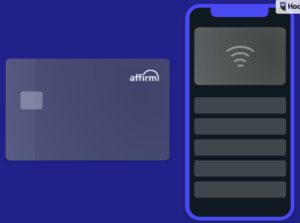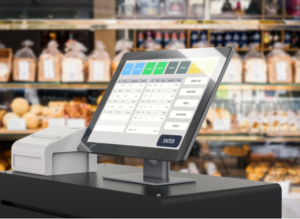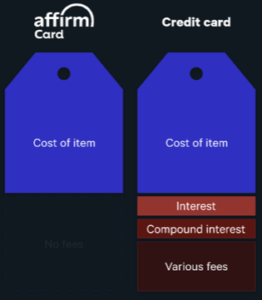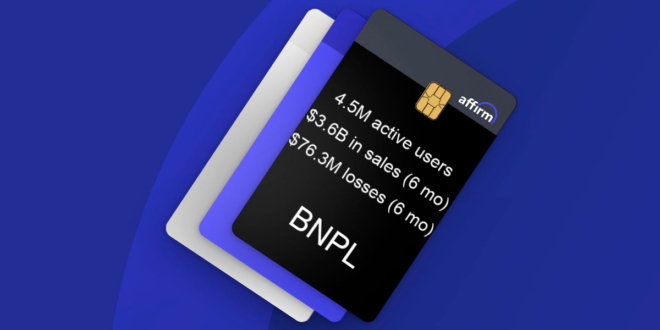By Jeff Domansky, March 1, 2021
The global $400 billion-plus buy now, pay later (BNPL) market is heating up incredibly fast, leading to some interesting new features and competitive positioning by market leaders.

San Francisco-based Affirm announced plans to issue the first US debit card with buy now, pay later baked into its features. Consumers will be able to buy in-store or online with their Affirm card and, with a couple of taps on an app, split their repayment into three or four interest-free payments.
“We know consumers are looking for financial control and flexibility. In the last year, we’ve seen two key trends: huge growth of buy-now-pay-later transactions and consumer preference shift to debit cards over credit cards. The Affirm Card combines the two, allowing Affirm to meet consumers where they are and empowering them to pay on their own terms,” said Max Levchin, CEO and founder of Affirm.
Shoppers also can pay interest on larger loans or longer terms up to 36 months, depending on the merchant offer. Consumers can even choose their new Affirm debit card “in a range of colors you’ll love,” according to the company website.
A hot consumer offer

According to Motley Fool, more than one-third (37.7%) of US consumers have already used buy now pay later services. Most of these consumers are looking for ways to avoid higher credit card interest charges. Some shoppers with low credit ratings can get BNPL credit with some online lenders who use no credit bureau checks to assess eligibility.
BillMeLater, acquired by PayPal and now operating as PayPal Credit, is the most popular US service, followed by Afterpay, Affirm, and Klarna.
BNPL is most popular among shoppers age 35-44 (50.1%), followed by 25-34 (46.8%), 45-54 (42.2%), 18-24 (37.7%), and trailed by boomers over age 54 (20.6%).
According to Adam Ezra, co-founder and co-CEO of BNPL service QuadPay, part of the youth appeal of BNPL is most Millennials don’t have credit cards.
“67% of Millennials don’t have a credit card at all — either because they aren’t approved for one based on their credit history, or they simply prefer to avoid traditional credit. Many don’t think it makes sense to use credit for lower value, everyday purchases that could impact their credit scores and come with hidden costs,” Ezra says.
What’s the deal for business?

With more than 6.2 million shoppers in the US network, Affirm says merchants could see positive results by offering BNPL to consumers, including an 85% plus an increase in average order value and a 20% repurchase rate.
Affirm will tailor a merchant program for purchases from $50-$17,500 and more across e-commerce, in-store, and telesales as well. Repayment terms from 18 months to 36 months are available to accommodate the consumer purchases of big-ticket items.
The company offers merchants a direct API integration and plug-ins requiring little code and integrating easily with nearly 40 popular e-commerce platforms, including WooCommerce, Shopify, Salesforce, BigCommerce, Magento, and OpenCart.
The merchant API adapts for use in-store, e-commerce, and on mobile sales channels.
Cost to merchants

The cost to a merchant ranges between 2% and 3% or more depending on the industry, credit rating, time in business, and other factors used to assess merchant credit worthiness. Depending on your credit card provider, this service may cost less.
Merchants can set the repayment terms and rates by products and price points on a merchant dashboard. When integrated and installed by the merchant, the adaptive checkout lets consumers pick their repayment options from split pay, installments, or both.
Customer and business appeal
Those 6.2 million-plus Affirm shoppers are a desirable target market for businesses of every size.
Affirm already works with large e-commerce companies and retailers, including Casper, Nordstrom, Peloton, Pottery Barn, Purple, Ring, Swatch, Walmart, Warby Parker, and Williams Sonoma.
The threat for companies in the very competitive BNPL market varies from the loss of significant customers to competitors, repayment defaults, new companies entering the market, and the 48.5% of consumers who say they don’t understand how pay-later services work.
$680 billion market by 2025
Kaleido projects global consumers will spend $680 billion using ePOS finance/BNPL on e-commerce channels in 2025. That’s a tantalizing market for the fintech innovators.

ResearchandMarkets estimates the shift in consumer spending due to Covid-19 could drive away $100 billion annually from credit cards to debit cards.
Affirm may have the perfect product for the moment as consumers try to avoid painfully high credit card interest rates.
The company recorded $3.6 billion in sales and $378 million in net revenue in the six months ending Dec 31, 2020. But analysts have noted 28% of public company Affirm’s revenue in fiscal 2020 came from a single client – Peloton.
Those $2400 plus Peloton bikes represent the perfect higher-priced product for consumers, retailers, and BNPL financing. They’re also the perfect risk profile for this segment of the emerging loantech industry.
Competitor Klarna announced today it raised $1 billion in new financing, placing its market value at $31 billion compared to $25 billion for Affirm.
Buy now pay later is the perfect offer for some consumers struggling during the pandemic. We’ll be watching now to see what happens as competition grows and new features like Affirm’s new debit card enter the marketplace.
Oh, and profitability for BNPL operators? That’s a topic for another day, much, much further in the future.
Visuals courtesy of Affirm
PaymentsNEXT stories on buy now pay later market:
Buy now pay later for billion-dollar elective healthcare market








LET’S CONNECT